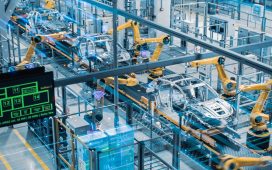
Apple is, of course, not blind to the growing tension between the two nations. It’s rapidly increasing investments in India and manufacturing hubs elsewhere across the APAC region, evidence of that awareness. But even now the vast majority of its products are made in China. Building a replacement manufacturing ecosystem was always going to take vast amounts of money and time, and it wasn’t merely the pandemic that forced Apple’s operations staff to accelerate investment in manufacturing outside of China.
It’s complicated
One thing Apple doesn’t need is for trading conditions to worsen in what remains its biggest market outside the US. The slow move by China’s government to reject iPhone use at work is potentially as significant a problem to the company as the US government’s poorly considered anti-trust litigation against it. Both sets of decisions are likely to hit Apple’s bottom line, even as the gulf between the two nations continues to grow.
The race to AI is unlikely to improve things. The US has already taken steps in the form of sanctions to hamper China’s progress in AI development, though the impact seems limited. At the same time, Apple’s decision to introduce its own AI tools first only in the US, and to confirm that the EU will not gain access to them for some time yet, reflects a similar story of disunity as nations vie for tech prominence.












